#andrew greenberg
Explore tagged Tumblr posts
Text
The Bulletin: 08/30/24

This past week has been a week of a variety of losses. We're also getting a Croc remaster, for some reason. Read the full article
#andrew greenberg#Arc System Works#argonaut games#croc#final fantasy#Final Fantasy BraveExvius#final fantasy xiv#guilty gear strive#Hasbro#netease#ouka studios#rpg#square enix#take this#tencent#visions of mana#wizard 101#wizardry
6 notes
·
View notes
Text

Magic is like telling a lie so convincing that even the universe believes you!
(Spawn #19)
#spawn#al simmons#harry houdini#magic#lies#absurd#tom orzechowski#Andrew Greenberg#greg capullo#image comics#comics#90s comics
10 notes
·
View notes
Text


#dracula: a comedy of terrors#dracula a comedy of terrors#gordon greenberg#steve rosen#theater#theatre#plays#tumblr polls#oh hey there andrew keenan bolger
40 notes
·
View notes
Text




1 year ago today Hazbin Hotel premiered on Amazon Prime Video!!!
Vivienne Medrano had a meeting at Warner Bros!!!
#Hazbin Hotel#Amazon Prime#Vivienne Medrano#Stephanie Beatriz#Alex Brightman#Keith David#Kimiko Glenn#Erika Henningsen#Blake Roman#Amir Talai#Parry Gripp#Sam Haft#Andrew Underberg#Evan Alderete#Gooseworx#Thomas Ryan#Alli Reich#Scott Greenberg#Joel Kuwahara#Dana Tafoya-Cameron#Peter Williamson#Scott Henry
4 notes
·
View notes
Video
youtube
OUT OF DARKNESS | Official Trailer, Poster & Images
Set some 45,000 years ago, a group of six people are struggling to find a new home having embarked on a perilous journey across the narrow sea. Starving and desperate, they seek shelter and set out towards distant mountains, hoping to find the caves.

Chuku Modu and Kit Young in Bleecker Street's OUT OF DARKNESS Credit: Bleecker Street
As night falls, eerie sounds in the landscape hint at the presence of something dangerous and monstrous. As As tension unravels the group the determination of one young woman reveals the horrifying acts people resorted to in order to survive.

Chuku Modu in Bleecker Street's OUT OF DARKNESS Credit: Bleecker Street
OUT OF DARKNESS is directed by Andrew Cumming, screenplay by Ruth Greenberg, and stars Safia Oakley-Green, Kit Young, Chuku Modu, Iola Evans, Arno Lüning, & Luna Mwezi.

Luna Mwezi in Bleecker Street's OUT OF DARKNESS Credit: Bleecker Street
OUT OF DARKNESS is being released by Bleecker Street Media in theaters nationwide February 9th, 2024.
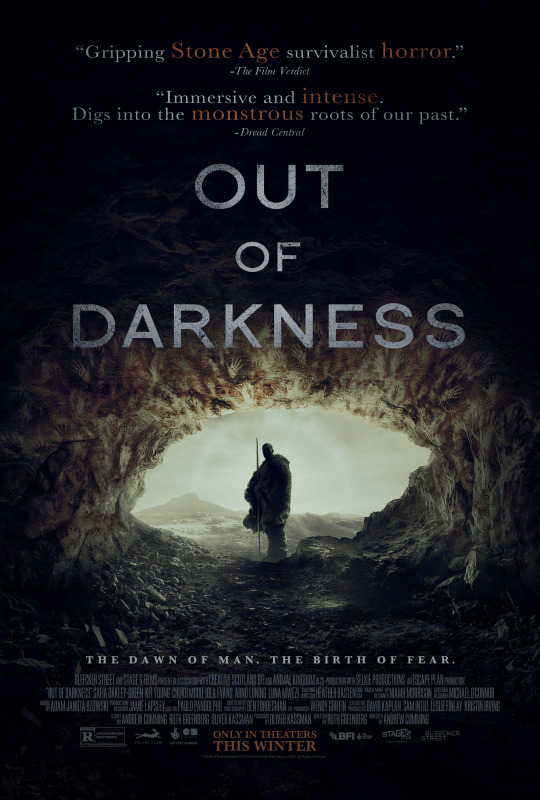
#youtube#film news#movie news#out of darkness#trailer poster#images#bleecker street#andrew cumming#ruth greenberg#safia oakley-green#chuku modu#kit young#luna mwezi#horror#stone age#thriller
12 notes
·
View notes
Text
Just What Survives "Out of Darkness" May Well Haunt You!
Now playing in theatres is Out of Darkness, an effective #horror movie that combines the best elements from Prey (Predator) with a #prehistoric tale of #suspense that'll surprise in the end! My #spoilerfree #moviereview at:
Now in Theatres At a cursory glance, one may think Out of Darkness is Andrew Cumming and Ruth Greenberg‘s answer to Prey. This director and writer have a solid vision that kept me guessing, and while the comparison to the Predator film is unintentional, this horror movie kept me guessing at what lays out of focus, from the camera! That terror is lurking out of the edges of what’s filmed, and if…
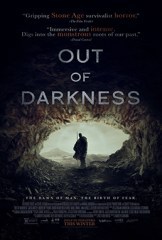
View On WordPress
#Andrew Cumming#Caveman#Chuku Modu#Horror#Iola Evans#Kit Young#Luna Mwezi#Movie Reviews#Ruth Greenberg
1 note
·
View note
Note
i think you do a really impressive job balancing comprehensive/concise while referencing a lot of complex frameworks(contexts? schools of thought? lol idk what to call that. big brain ideas) but if you have any readings specifically on the institution of psychiatry topic that you would recommend/think are relevant, I'd be interested. it's absolutely not a conversation that's being had enough and I want to be able to articulate myself around it
yes i have readings >:)
first of all, the anti-psychiatry bibliography and resource guide is a great place to start getting oriented in this literature. it's split by sub-topic, and there are paragraphs interspersed throughout that give summaries of major thinkers' positions and short intros to key texts.
it's from 1979, though, so here are some recs from the last 4 decades:
overview critiques
mind fixers: psychiatry's troubled search for the biology of mental illness, by anne harrington
psychiatric hegemony: a marxist theory of mental illness, by bruce m z cohen
desperate remedies: psychiatry's turbulent quest to cure mental illness, by andrew scull
psychiatry and its discontents, by andrew scull
madness is civilization: when the diagnosis was social, 1948–1980, by michael e staub
contesting psychiatry: social movements in mental health, by nick crossley
the dsm & pharmacy
dsm: a history of psychiatry's bible, by allan v horwitz
the dsm-5 in perspective: philosophical reflections on the psychiatric babel, by steeves demazeux & patrick singy
pharmageddon, by david healy
pillaged: psychiatric medications and suicide risk, by ronald w maris
the making of dsm-iii: a diagnostic manual's conquest of american psychiatry, by hannah s decker
the myth of the chemical cure: a critique of psychiatric drug treatment, by joanna moncrieff
the book of woe: the dsm and the unmaking of psychiatry, by gary greenberg
prozac on the couch: prescribing gender in the era of wonder drugs, by jonathan metzl
the creation of psychopharmacology, by david healy
the bitterest pills: the troubling story of antipsychotic drugs, by joanna moncrieff
psychiatry & race
the protest psychosis: how schizophrenia became a black disease, by jonathan metzl
administrations of lunacy: racism and the haunting of american psychiatry at the milledgeville asylum, by mab segrest
the peculiar institution and the making of modern psychiatry, 1840–1880, by wendy gonaver
what's wrong with the poor? psychiatry, race, and the war on poverty, by mical raz
national and cross-national contexts
mad by the millions: mental disorders and the early years of the world health organization, by harry yi-jui wu
psychiatry and empire, by sloan mahone & megan vaughan
ʿaṣfūriyyeh: a history of madness, modernity, and war in the middle east, by joelle m abi-rached
surfacing up: psychiatry and social order in colonial zimbabwe, 1908–1968, by lynette jackson
the british anti-psychiatrists: from institutional psychiatry to the counter-culture, 1960–1971, by oisín wall
crime, madness, and politics in modern france: the medical concept of national decline, by robert a nye
reasoning against madness: psychiatry and the state in rio de janeiro, 1830–1944, by manuella meyer
colonial madness: psychiatry in french north africa, by richard keller
madhouse: psychiatry and politics in cuban history, by jennifer lynn lambe
depression in japan: psychiatric cures for a society in distress, by junko kitanaka
inheriting madness: professionalization and psychiatric knowledge in 19th century france, by ian r dowbiggin
mad in america: bad science, bad medicine, and the enduring mistreatment of the mentally ill, by robert whitaker
#sorry this is SO MANY things lmao#i wld recommend starting with harrington or scull as an intro and then maybe look at one of the more topic-specific texts#depending on what interests you specifically#book recs#psychiatry
715 notes
·
View notes
Text
Have you played MAGE : The Ascension ?
By Stewart Wieck, Christopher Earley, Stephan Wieck, Bill Bridges, Sam Chupp, Andrew Greenberg

Set in the World of Darkness, players are ordinary humans who awaken to magic and become able to shape the reality around them. Players will be a part of a sect which has its own philosophy of living and of the purpose/nature of magic and how it should be used. The ultimate goal of most mages is to ascend beyond mortality to become a higher being (some mages believe ascension to be impossible and focus more on day-to-day living). Players will need to survive in a harsh world of vampires and werewolves while also trying not to cause paradoxes with their magic. At the same time the faction known as the Technocracy is attempting to stamp out magic and hunting mages (unaware that they, themselves, are mages which is why their technology is so advanced).
90 notes
·
View notes
Text
April 2024 Reads

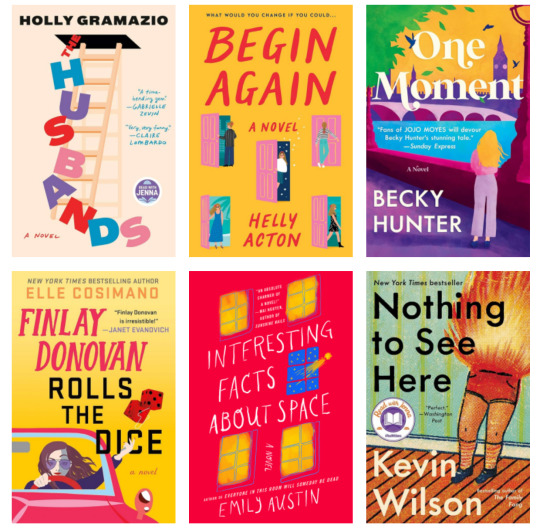
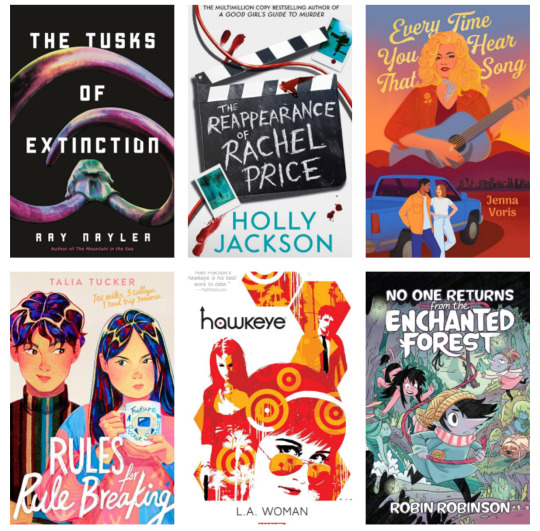
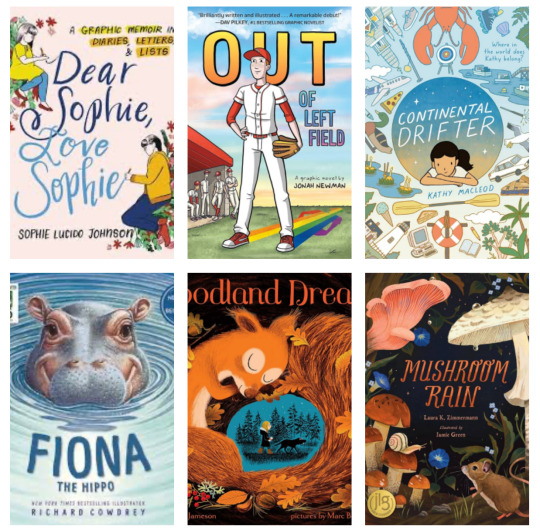
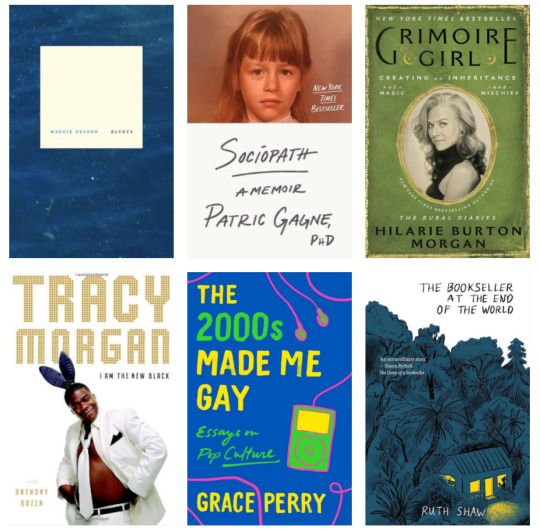
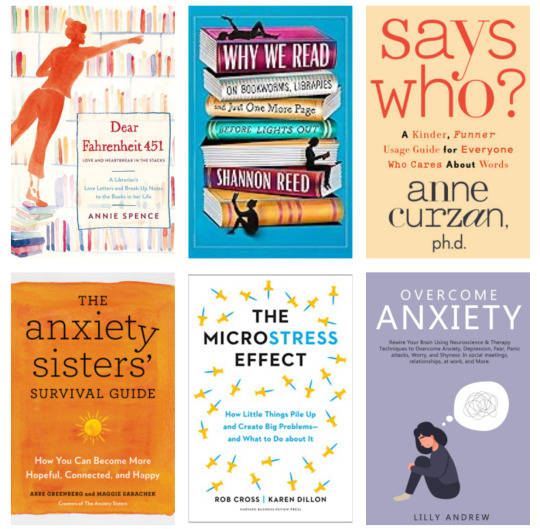
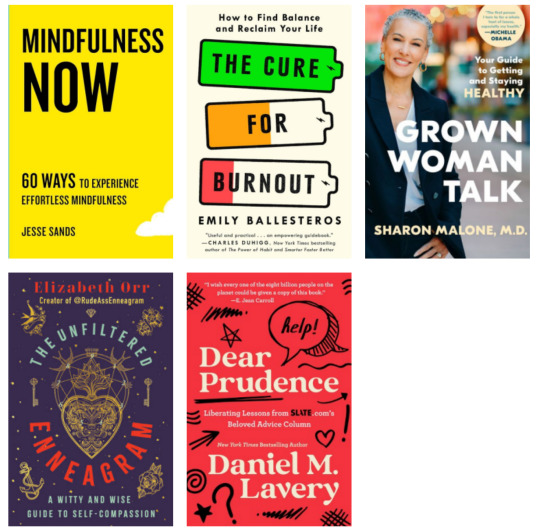
Just for the Summer - Abby Jimenez
Only and Forever - Chloe Liese
Say You'll Be Mine - Nana Kumar
The Governess's Guide to Passion and Peril - Manda Collins
The Lying Game - Sara Jane Woodley
The Prospects - K.T. Hoffman
The Husbands - Holly Gramazio
Begin Again - Helly Acton
One Moment - Becky Hunter
Finlay Donovan Rolls the Dice - Elle Cosimano
Interesting Facts About Space - Emily R. Austin
Nothing to See Here - Kevin Wilson
The Tusks of Extinction - Ray Nayler
The Reappearance of Rachel Price - Holly Jackson
Every Time You Hear That Song - Jenna Voris
Rules for Rule Breaking - Talia Tucker
Hawkeye, Volume 3: L.A. Woman - Matt Fraction
No One Returns from the Enchanted Forest - Robin Robinson
Dear Sophie, Love Sophie - Sophie Lucido Johnson
Out of Left Field - Jonah Newman
Continental Drifter - Kathy MacLeod
Fiona the Hippo - Richard Cowdrey
Woodland Dreams - Karen Jameson
Mushroom Rain - Laura K. Zimmermann
Bluets - Maggie Nelson
Sociopath - Patric Gagne
Grimoire Girl - Hilarie Burton Morgan
I Am the New Black - Tracy Morgan
The 2000s Made Me Gay - Grace Perry
The Bookseller at the End of the World - Ruth Shaw
Dear Fahrenheit 451 - Annie Spence
Why We Read - Shannon Reed
Says Who? - Anne Curzan
The Anxiety Sisters' Survival Guide - Abbe Greenberg, Maggie Sarachek
The Microstress Effect - Rob Cross
Overcome Anxiety - Lilly Andrew
Mindfulness Now - Jesse Sands
The Cure for Burnout - Emily Ballesteros
Grown Woman Talk - Sharon Malone
Unfiltered Enneagram - Elizabeth Orr
Dear Prudence - Daniel M. Lavery
Bold = Highly Recommend Italics = Worth It Crossed out = Nope
Thoughts:
A few standouts this month: Only and Forever brings the Bergman Brothers series to an end, and it was a worthy wrap up to these stories featuring MCs with disabilities and neurodivergence.
Just for the Summer is my new favorite Abby Jimenez book with several laugh out loud moments - especially the raccoon scene - which was hilarious on audio.
The Bookseller at the End of the World is not the cozy bookseller tale you might expect. Ruth led a varied and adventurous life filled with heartbreak and hope.
And I really enjoyed Says Who? - a super accessible and fun guide to English style and grammar.
Goodreads Goal: 150/200
2017 Reads | 2018 Reads | 2019 Reads | 2020 Reads | 2021 Reads |
2022 Reads | 2023 Reads | 2024 Reads
23 notes
·
View notes
Text
Donald Trump has threatened to go after a lot of people—journalists, political rivals and undocumented immigrants to name a few—and starting next year, he’ll have the entire national security apparatus at his disposal.
What’s the best way to keep your personal information secure from surveillance, not just by the government, but also data brokers, tech companies, and online scammers? Leah talks with WIRED business editor Louise Matsakis and security editor Andrew Couts about what to expect and practical tips for your phone, computer, and life.
Leah Feiger is @LeahFeiger. Andrew Couts is @couts.bsky.com. Louise Matsakis is @lmatsakis. Write to us at [email protected]. Be sure to subscribe to the WIRED Politics Lab newsletter here.
Mentioned this week: The WIRED Guide to Protecting Yourself From Government Surveillance by Andy Greenberg and Lily Hay Newman Anyone Can Buy Data Tracking US Soldiers and Spies to Nuclear Vaults and Brothels in Germany by Dhruv Mehrotra and Dell Cameron A New Phone Scanner That Detects Spyware Has Already Found 7 Pegasus Infections by Lily Hay Newman
Transcript
Note: This is an automated transcript, which may contain errors.
Leah Feiger: This is WIRED Politics Lab, a show about how tech is changing politics. I’m Leah Feiger, the senior politics editor at WIRED. Donald Trump is returning to the White House with a long list of grievances. We know he wants to deport millions of undocumented immigrants scattered across the country, that he’s vowed to go after journalists, and wants prosecutions of his political opponents. His allies in Congress are eager to roll back abortion and transgender rights, and there are calls, generally on the right, for a crackdown on left-leaning activist groups. As head of the national security apparatus, Trump will be in possession once again of a huge surveillance machine. It’s tempting to feel anxious about all of this, but there are a lot of compelling reasons to think about your cybersecurity that go way beyond what Donald Trump may or may not do. We wanted to do a little bit of a cybersecurity reset. What are the best practices for all of us, things that might protect us from a snooping government, internet scammer, or data collection company. Joining me to talk about the various ways we can protect our data is Andrew Couts, WIRED senior editor of security and investigations. Hey, Andrew.
Andrew Couts: Hey, great to be here.
Leah Feiger: And Louise Matsakis, WIRED senior business editor. Hey, Louise.
Louise Matsakis: Hey, it’s so great to be here.
Also On WIRED
Leah Feiger: Let’s kick this right off. This guide also exists on WIRED.com. You can click on the link in our show notes today. Who is this guide for? Why should people know how to protect themselves online?
Andrew Couts: The guide is for anybody who feels like they might be in a vulnerable situation from government surveillance, or it could include an abusive partner or anyone who really feels like they need to take extra steps to protect themselves. I would say entering these uncertain times of the incoming Trump administration, that's probably changing compared to how it was in the past few years or ever. It's really up to you as the reader or listener to read the guide, see if it applies to you, see if theres anything in your life that makes you feel nervous about it and take some steps to protect yourself.
Leah Feiger: Let’s talk about those specific people a little more. My dad listens to the show. Hey, dad. Should he be doing this? Should he be following the guide?
Andrew Couts: It’s really very subjective and so it might not apply to everybody, but there's really little downside to protecting yourself and taking extra steps to ensure that your privacy is secured as best that you can make it. I would say if you are an activist, if you're a political person publicly, if you are in a vulnerable community, the only downside is some inconvenience and having to make sure you’re on top of various settings and things. We tried to present our guide in a way that's on a sliding scale so you can mix and match what you think is appropriate for your life and for your risk level. It's not just government surveillance that this applies to, because we all know everybody's getting scam texts and calls all the time. It applies to that too because just because your data is safe with one of the apps you use, they could get breached and then that data is out there and it can be connected to all different types of information that's out there about you already, and it can make even people who aren't in the public eye or otherwise engaged in any behavior that might make them a target still vulnerable.
Leah Feiger: Let’s just take a quick step back for a moment and talk about some big picture information about how online surveillance currently works. It’s so integrated into our online experience. Like you said, how many times have I gotten messages that my apps have been breached, that this password is unsecure, it's a daily occurrence. Obviously, Louise, you're an expert on everything China. Andrew, you have been covering this for so long. Talk to me about this big picture. What are we actually even coming up against here?
Louise Matsakis: I think in the last few years it’s definitely gotten a lot worse. I think a lot of us are familiar with the experience of I want to buy a new pair of sneakers. I look at this pair of sneakers and then that pair of sneakers follows you around the internet everywhere. Suddenly you see it on your phone, you see it in your Instagram ads. The other day I had the experience of actually looking up a couch on Facebook marketplace, and then because my Facebook data is connected to my Instagram data, I started getting Instagram ads for couches and I was like, “Hey, Facebook.”
Leah Feiger: Incredible.
Louise Matsakis: “I can't afford a new $3,000 couch, which is why I'm looking for a used one.”
Leah Feiger: But thank you for waving it in my face.
Louise Matsakis: There’s also, I think, the most invasive form of surveillance in a lot of ways is location tracking. You're seeing advertisements based on your IP address, based on where you go every day. A lot of people have their Google history on, so Google knows literally what time you leave your house every day, what time you return, when you maybe go somewhere like Planned Parenthood or when you go to a protest and when you return from that protest. Often, a lot of times I encourage people to look at lawsuits when they want to see what data is available to law enforcement because you can see how your trove of text messages, iMessage, conversations going back sometimes maybe an entire decade between people end up being used as evidence. I think also it's good for people to know that sometimes protecting yourself can be inconvenient and make things a little bit harder, but it can also be nice and actually better for your life. I don't want to see those couches everywhere. I don't want to see those sneakers. Because I have a lot of my conversations now set to auto delete, I'm actually saving storage space and I don't really need those conversations from three months ago where I'm like, “Hey, I'm going to be five minutes late to have coffee with my friend.”
Leah Feiger: Well, you bring up such a funny point. I think when we're talking WIRED's Guide to Government Surveillance, like you said it has so many different levels to it. There's on one hand, yes, perhaps at some point if Kash Patel takes over the FBI, what does it look like for journalists and activists in this space? But then there's also the smaller, the day-to-day people should be allowed to do that too. Dad, if you're listening, get on it.
Louise Matsakis: Yeah, exactly. I think privacy is a virtue that permeates all aspects of society and it's worth protecting whether you are a vulnerable activist or whether you are Leah’s dad.
Andrew Couts: Part of the issue here is that everybody knows you’re getting tracked for ads and your location is getting tracked for various reasons and all these things, and I think it’s often put in the context of advertising or some commercial uses. I think the two big issues right now are one, all of that data can now be purchased by the government instead of getting a warrant. They're basically able to just go around the Fourth Amendment. This is happening, police are doing this, Immigration Customs Enforcement is doing this. We do a lot of stories at WIRED that are based on location data. The most recent one was one about a data broker who supplied more than 3 billion data points on people in Germany. Why Germany matters to people in the US is that we have a lot of military installations and intelligence installations there. We were able to looking at the raw data, you could just literally track someone from a bunker where our nuclear weapons are stored to a brothel where they go after work, to their home and see their commute every single day.
Leah Feiger: Everyone go check the story out on WIRED.com. It's an amazing real life example of how this all is at play, but it’s crazy.
Andrew Couts: It’s crazy. I think the issue is that we just don’t know how this data is going to be used in the future. I think part of the issue here is just continued exposure that can lead to unintended consequences. So you might think you’re not vulnerable right now. We just don’t know what the future holds or how this data can be repackaged, shared, leaked, anything. Anytime your data is such sensitive data about where you go every single day or what websites you’re looking at, what apps are on your phone, all this stuff that might be used just to serve you an ad for a couch could also be used to embarrass you publicly or track you and surveil you in other different ways. I think it’s really important for people to understand that none of this stuff is happening in a bubble. It is all very porous in terms of who can get access to this data anywhere from a data broker who might just be a guy in his office in Florida, like one dude with a couple of computers. There’s a lot of data brokers out there and there are a lot of ones that are just some random person who has massive amounts of information on you, to the FBI or ICE or whoever it might be.
Leah Feiger: Let's talk about what you guys do. How do you lock up your cybersecurity? Do you use flip phones? What is your cloud storage? Are you only on Signal? All of these things I'm referencing by the way in the WIRED guide, go check it out. Where are you guys at?
Louise Matsakis: I have most of my conversations on Signal and I have the vast majority of them set to delete every four weeks. I find that that’s a good timescale for normal everyday conversations and then more sensitive conversations delete sometimes in as little as a few hours or a few days. Very rarely have I found that this is inconvenient for my life. Sometimes I ask a friend like, “Hey, that cool Airbnb, you stayed in that I know you already dug the link up to. Can you send that to me again?” But that's a pretty minor.
Leah Feiger: Small price to pay.
Louise Matsakis: Yeah, small price to pay. I'm really careful about location tracking and then usually-
Leah Feiger: So you are not active on Find My Friends?
Louise Matsakis: No. Although I do track my Boomer mom.
Leah Feiger: Sure.
Louise Matsakis: Yeah. Who won’t listen to this podcast, so sorry mom, I am tracking you. She knows this.
Leah Feiger: The big reveal, actually.
Louise Matsakis: Yeah, but I actually don't let her.
Leah Feiger: It’s the Louise Global Surveillance blog.
Louise Matsakis: Yeah, don’t let her track me back though. That’s my business. But when you get over the age of 70, your kid is allowed to see where you’re going.
Leah Feiger: Absolutely, amazing. Yeah.
Louise Matsakis: But I don’t use location tracking. I turn location tracking off for most of my apps and then I have a separate blank device and sometimes I bring that depending on where I’m going, particularly when I'm going to mainland China.
Leah Feiger: Yeah, I was going to ask, because you do reporting trips, you have sources all over the place. Are you bringing air gap devices? Is your work computer coming with?
Louise Matsakis: I usually will not bring my work computer. I'll bring a personal computer that doesn’t have very much information on it and I will bring a blank cell phone. I'll put various Chinese apps on that phone that I don’t really want. I don't really want WeChat just hanging out on my normal device for the most part. But those are pretty above and beyond precautions that I don't think the average person needs to take. But I think just making sure, do you really need 30 apps on your phone having your location? Because to Andrew's point about all of these data brokers, a lot of the time they're getting this location information, not from Google necessarily, or not from Facebook, not from these big companies that they don't need to sell that information. It’s literally often the game you downloaded and you forgot about. It's like the silly Candy Crush knockoff.
Leah Feiger: Oh God, I'm screwed. Yeah.
Louise Matsakis: Yeah, it’s worth just looking at those sort of apps that you forgot about and realizing, “Oh, all of these applications have particularly your location information.” Those are the two things that I prioritize is ensuring that it’s not just protecting my data, but I don't have that data. If my device gets seized, it’s like those conversations are just not there. You only see the last few weeks at the most, and in most cases maybe you see that that person's contact is in my phone, but you have no idea what we talked about because that data has been erased and Signal is also end-to-end encrypted. It’s not being stored on a server somewhere where a court could make a subpoena for it or cops could try and get a warrant for it. Those are my two big things. There are a lot of other things you can do, but I think for the average person who knows where you’re going and what are your conversations and where are they and how they being stored and do you want to keep them all the time?
Leah Feiger: Absolutely. Absolutely. Andrew, how about you?
Andrew Couts: Yeah, I would echo basically all of those, though I'm not going on cool reporting trips to China, so that’s outside my knowledge. But just to reiterate on the apps, I would say one thing I do is I just limit the number of apps that are on my phone and I don't ever download ones that are just, there's no need for it. I'm not going to download the McDonald's app or something. There’s things that might be a little bit convenient, but McDonald’s doesn't need to have an app on my phone all the time.
Leah Feiger: OK, so talk me through that though, because I’m with you. I’m totally with you. What’s wrong with having these extra apps on your phone?
Andrew Couts: It really just depends on the specific app, but if they get access to your phone book, they can do contact mapping. If they get access to your location, obviously they can do behavior mapping so they can see what other stores you’re going into and just mapping out what your behaviors are, what your activities are. Usually, that’s just to sell you more stuff.
Leah Feiger: Which as Louise points out, you don’t have to have that either in your life.
Andrew Couts: Right, exactly. There’s just no reason for them to have any data about me, to Louise’s point that just the data shouldn't exist in the first place. I try to limit the number of apps. I also am very diligent about making sure my location settings are all up to date. Just nothing can track me unless I’m using the app and for a mapping app or can’t track me at all if I’m... Not to endorse Apple, but I use an iPhone, it has a lot of really good privacy features that people can take advantage of. Some of them make your life slightly less convenient, but I’d say the trade-off is well worth it. The most important... I’d say the one thing anybody can do to protect their privacy most is to use Signal and to get everyone they know to use Signal. I would say obviously there are benefits to protecting your conversations, but if you are thinking, “Well, WhatsApp also uses the Signal protocol,” if you’re into that nerdy stuff about how this encryption works, that’s true, but WhatsApp also collects all the metadata. I would highly recommend Signal over any other encrypted app that’s out there at the moment. Then I just try to limit what I'm doing on my devices that I think might be sensitive. I also, I think financial privacy is also really important and so I try to use cash on a regular basis. Obviously, it’s not very convenient.
Leah Feiger: Really?
Andrew Couts: Yeah, I do it for-
Leah Feiger: This is a new fact. I’m learning about you right here, right now. Everything else I could have predicted.
Andrew Couts: Well, just on the daily shopping and things like that, that when it's convenient for me to do it, I can’t do that through Uber or something. I don’t use Uber really, but I'm here in San Francisco this week, so I am. I’m going to delete the app as soon as I get to the airport, but around town grocery shopping and shopping for my dogs, I’ll use cash if I can because it’s still really private and it’s more private than cryptocurrency. It’s more private than anything at this moment.
Leah Feiger: Interesting. You guys haven’t mentioned the one thing that I’m personally a bit obsessed with, so maybe I’m actually wrong, so tell me if I’m wrong. I love my DeleteMe. DeleteMe, for everyone by the way, just is, how do I even describe it? It's a subscription tool to purge your information from data brokers.
Louise Matsakis: Yeah, so what they do is there’s a lot of these sometimes they’re referred to as people look up sites and they’re basically these databases of... Sometimes they're actually scraping courts, so it will literally show when you filed for divorce, even if you can't see the actual court documents and it will show often your address. Sometimes they make family trees so it will show Leah is related to her dad and they both lived at the same address or whatever it is. It’s really sensitive information and there are services DeleteMe. There are other ones that will on your behalf will send a request saying like, “Hey, you need to take my data down.” I think that this is a really good thing that you bring up and it's really important because one of the most sensitive pieces of information about you is where you live, right, where you sleep every night. If you are an activist, if you are somebody who's posting a lot of things on the internet, if you are making other people mad, it is fairly likely that you might encounter somebody who is so mad at you or detests you so much that they want to know where you live. I’m not saying that people are going to necessarily come and show up at your house, but it’s really scary.
Leah Feiger: Absolutely.
Louise Matsakis: I've had this experience where people are saying, “I know where you live, this is your address,” and that is a very common form of harassment and there have been plenty of documented cases where people do show up. I think protecting that information is important and that’s obviously something that is not easy to change. Sometimes people just open a new email address because they’ve gotten too much spam to their old one, but it’s really hard to get a new apartment or buy a new house or whatever it is.
Leah Feiger: I would also say not even just people that are active online or making their opinions known or hated. You could work at a nonprofit and wake up the next day that a woman’s health organization that perhaps actually doesn't have that much to do with abortion and you and your colleagues are on blast from far right?
Andrew Couts: Absolutely. I think DeleteMe is a great service and it’s one that obviously it costs some money so not everybody is able to afford it, which is unfortunate, but if you can, I highly recommend it. I think other steps you can take just nuts and bolts. You can use a VPN to protect a lot of your information while you’re online. There are a lot of caveats to that. A lot of VPN companies are bad in the ways that we’re talking about here about data brokers or whatever else they have access to everything you’re doing online, so do your research on that. The Freedom of the Press Foundation has a great guide to how to figure out which VPN is good for you. The other thing is just make sure you’re not posting where you’re at on social media. If you’re going to post about being at a concert, maybe think about posting it after the concert is over or when you're not in that area, because to Louise’s point, we’re talking about government surveillance or threat actors or whatever these high-minded things. But a thing I’m nervous about is going into this new era of polarization, hyper-political ideas is that vigilante justice and people thinking there’s supposed to go after you because you made them mad about something, about anything. If they find your address, if they find all your contact information, etc. That can be extremely scary. Another thing I would say to do is if you want to protect your anonymity, definitely don’t use the same username on various different platforms. Don’t use the same email address, don’t use your phone number connected to apps if you can avoid it. All these things can be pieced together, especially when there’s a data breach and it's relatively trivial to do that. There are tools out there that make searching that information very easy. Anytime you can obfuscate your online identities, that's a very good thing to do just in the long-term.
Leah Feiger: We got to bring this into our current political situation here. We're obviously all gathered and talking about this for a very specific reason. Trump has threatened to go after government staffers who leak information to journalists. He’s threatened to go after journalists, he’s threatened to go after political enemies and he’s gone after journalists communications in the past. How can people prevent the government from reading their texts and emails?
Louise Matsakis: Under a regime that is concerned about retribution, it's hard. Again, I go back to do not have the data in the first place. When I've talked to sources, don't be on your company's Wi-Fi, do not forward emails, do not forward text messages, use a different device if you can take a picture of that email on your cellphone network, not on the Wi-Fi that your computer is connected to and send that over Signal. Then have that message auto delete, right? I think it's about when the government says, “Hey, produce this information,” the best thing to say is, “I don't have that information. That information does not exist.” Also, I think it’s important for people to realize if you’ve never been in this situation before, they’re not coming to you necessarily. They’re coming to the providers that you use like Google, like Facebook, like WhatsApp, and they are legally required or compelled to provide this information. In most cases they do and sometimes they do it extremely quickly. If the government can prove that there is an emergency, and in most cases this is good, right? When a mass shooter is on the loose, it’s good that Facebook provides information that might help them catch that person. There’s a reason that these mechanisms exist, but under a regime that is not concerned about constitutional rights and that is going after their perceived enemies, these protections can become weak. I think it’s about just not having that data to produce is the best thing you can do and to use services like Signal that are end-to-end. Because in that case when the government says, “Hey, Signal provide this information on Louise and Andrew.” Signal can't access it, they do not have it. Their response is, “Sorry, our technology does not allow for you to compel us to provide this information.”
Leah Feiger: Meredith Whitaker, what a goddess.
Andrew Couts: I would just add obviously encrypt everything you possibly can. iCloud backup can now be encrypted. iMessages are also end-to-end encrypted as are FaceTime audio calls. I don’t know a lot about Android, I’m sorry. I’m sure that there are comparable features on Android platforms. Look it up, find out what you can do on those. Just limit using the cloud as much as possible. To Louise’s point that anytime a company is storing something for you, that’s who some the authorities are going to go to. One other Apple feature is lockdown mode, which is specifically for vulnerable people. It will lock down a lot of the sharing or collecting of this data that we’re talking about being sensitive across the entire device. That’s another way of just not making that data exist. If you need to get a different device to use it, that’s certainly an option. I would say if you are thinking about getting a burner phone, you have to be very, very diligent with that. You can never have it connect to your home Wi-Fi network, for example, or connect to your office Wi-Fi. That information then makes you more vulnerable and can expose you. The last thing I would say is if you’re just getting started to thinking about what your risk levels look like and what your digital privacy hygiene looks like, all the information before now is already out there and so you can’t really control that. Whatever’s been collected on your life up until now can probably be accessed by someone somewhere, so factor that in. That doesn't mean give up, it doesn’t mean it’s not worth doing anything, but it’s definitely something you just need to be aware of that if you’re just starting now, you’re going to be safer, but you're not necessarily going to be bulletproof going forward.
Leah Feiger: I feel bananas even having to talk about this because obviously your government should be protecting you. One of the things that I feel like we’ve all just been beating the drum on recently is the PRESS Act, which would protect journalists from government spying and it has a lot of bipartisan support and passed in the House, but it’s currently held up in the Senate. Senate Democrats have been slow walking it. How do you recommend that people hold these things at once? This is a very broad question of your government should not be doing this to you and simultaneously it may be, and thus you have to take these steps.
Louise Matsakis: I think it’s unfortunate, but this is the way that it works in most parts of the world. It shouldn’t be that way and I think it’s good to be idealistic, but I think it’s important to remember that America is not special and this is how governments behave. This is how law enforcement behaves, and that if you accept that and think of it as the norm, not that you shouldn’t fight, but that it’s worth considering that. However, in other ways we are really behind. We do not have a national privacy law. We have a patchwork of protections in certain states like California where we all are currently, which is great, but it’s a real shame. I often say this and it surprises a lot of people. There are more consumer, important to say consumer, but there are more consumer privacy protections in China than there are in the U.S. That is a shame. That is something that we should be ashamed about and that should be changed. But I think day-to-day it’s just good to be pragmatic and to know that law enforcement’s going to be law enforcement, the government’s going to be the government, and it’s just worth having a default. I think having these things be set in a way that you don’t have to think about it every day and that these conversations are just deleting. I’m just using this email service that’s end-to-end encrypted. I have my DeleteMe subscription that I only need to renew once a year, that makes it a lot easier. I think paranoia is very emotionally draining and you don’t want to be in a position where you’re constantly worried and you're constantly paranoid. I think when you use these things and you set it and forget it, you can feel more empowered to live your life the way you want. Then the conveniences of not being tracked, of not seeing the catch all the time, of not.
Leah Feiger: The Autonomous couch.
Louise Matsakis: Not having to pay more for cloud storage every year because you’re not putting as much data into the cloud. These things compound over time and then you just have a nicer digital life. That’s what I want people to have.
Andrew Couts: I think during the first Trump administration, we became glaringly aware of the difference between laws and norms. I think the PRESS Act is a great reminder that there are still more norms out there that can be pushed aside. That’s what that law is attempting to do is to make it a law that you can’t do certain activities of surveillance and targeting of journalists that are at the moment just rules in the book. For example, the FBI has policy that they’re not going to prosecute journalists for publishing stories about classified information, but that's just a rule. If-
Louise Matsakis: It’s not a law.
Andrew Couts: It’s not a law and that can just be brushed aside and there’s other protections like that and I think we’re going to become aware of more that we haven’t even thought of at this moment. I wish we had a national privacy law. I wish we had better press protections that weren't based on agency rules, but there’s only so much we can do and we have to operate in the reality that were entering. A thing you can do to protect yourself is all the things we’ve been talking about here, but you can also vote, support legislation that comes up in Congress, be politically active in a way that supports your ideals and that protects everybody, including yourself.
Leah Feiger: On that note, we’re going to take a quick break and when we're back more on surveillance in the age of Trump 2.0. Welcome back to WIRED Politics Lab. We've been talking about a lot of the different ways that the government can track us and these apps are bad and encryption is good, and having everything off of our phones and computers is also good. I think we need to talk a little bit about some of these tech companies and these apps that we’re using. Perhaps a way into that is all of these tech CEOs that have been congratulating Trump and kissing the ring. Does that give you any additional concerns when it comes to our conversations about cybersecurity?
Louise Matsakis: I think there’s two things. One is more of just a vibe shift, which is that I think a lot of these CEOs saw what happened during the first Trump administration and saw how he could fly off the handle and start tweeting about them. I think that they realize that he responds really well to flattery. I think you’re seeing a lot of CEOs just going and kissing the ring. They want to ensure that their businesses are protected and there’s a lot less standing up for principals, a lot less of the resistance. The second thing about corporations since the first Trump administration is that you've seen a lot more companies get into the advertising business. Amazon has an enormous advertising business now. Uber is now in the advertising business. I see ads in the Uber app. Even some of these new AI companies such as Perplexity, they said they're going to get potentially into the ads business as well. Another shift is that a lot more people are having really extensive conversations with chatbots, with things like ChatGPT, which is another place where you can not have your conversation save. I don’t think we've seen necessarily a case yet of OpenAI, or maybe not at least a high profile one, getting a subpoena for this information from their users, but it could happen if you're asking ChatGPT sensitive things. That’s the other shift is that it’s some of the kinds of data being collected and who is collecting it have changed. Advertising is really high margin business, so a lot more companies want to do it on top of their core business. I think considering that, that there's more companies that are hungry for your data than there were before, and that we are now in an environment where there is, I think, less appetite from corporations to push against things that the second Trump administration might do because I think they realize that this is an unpredictable guy who they can just be nice to and get what they want.
Leah Feiger: Oh, depressing.
Louise Matsakis: But yes.
Andrew Couts: The kissing of the ring thing, that seems just like what I would expect CEOs to do to protect their businesses above any other principles. I’m more concerned about what the internal policies are going to be and the norms that we've taken for granted from these companies. For example, many companies Google, Twitter, or X now rather, release transparency reports. They tell you how many subpoenas they get, how many they’ve fought, how many they’ve responded to, and we might not see as many of those. X, in particular, is one that we have to be especially cautious of because if you have the X app on your phone, it’s going to be collecting data about you regardless of whether you log on or not. Regardless of what you think about the discourse on X at the moment, that’s secondary to what the back end app is going to be collecting.
Leah Feiger: Right, especially when it’s CEO and owner are very involved in the administration.
Andrew Couts: Exactly. There’s no mystery to what Elon Musk is going to do with your data if he decides that he wants to do something with your data. He's fully within his right to do that, that’s his data basically.
Leah Feiger: Yes, we all gave it to him willingly.
Andrew Couts: Yeah, exactly.
Leah Feiger: This feels like a dumb question, but what does Trump want with your data?
Louise Matsakis: I think it depends a little bit on who you are, but I think throughout this campaign, Trump has made it extraordinarily clear that he feels like he was an enormous victim during his first administration and that he was prosecuted by the press, by the DOJ, by the FBI, by lawmakers. I think he is very eager to go after those people. Part of that process is seeing who were you talking to, who provided that information to those journalists that he hates and wants to get revenge upon. What were their conversations like? Who was talking to them? I think it’s personal in a lot of ways, but even if he can’t get a conviction, or even if a judge doesn’t want to go along with Trump’s antics or some of the checks and balances in our system do hold up, these things take so much time and a lot of what authoritarianism is about and what makes it so dangerous is that it throws a wrench into everything. It derails activists, derails journalists, derails opposition lawmakers from just getting things done. Even if people are not thrown into prison, it’s being harassed all day, having to appear in court over and over again, having to spend all of your money on legal fees, having a bunch of Trump’s allies harassing you all day. That is really exhausting and that is sort of the point. Even if they’re not able to get the data identifying you, targeting you and trying to get it, and the fear that that creates is enough to accomplish their goals.
Andrew Couts: It doesn’t even have to be anything more than your name and putting that out there publicly for you to be targeted by any number of people. We saw Kash Patel release a list of people in government who he considered enemies. Your life can be really upended just by, if Donald Trump sends out a tweet that says, "Andrew Couts is a piece of shit," that's enough to make my life chaos.
Leah Feiger: Let's get into one specific example that obviously we talk a lot about at WIRED and are quite familiar with, Pegasus. Biden signed an executive order keeping this incredibly sophisticated spyware called Pegasus, that’s been used against activists and journalists around the world. Biden signed an order banning it in the US. Do we think that ban is going to hold?
Andrew Couts: Absolutely not. That's one that’s going to go away immediately. We’ve already seen ICE... Wire broke the news that ICE purchased a different spyware or tried to, and that was immediately under review from the White House as soon as we reported that news. That’s the mechanisms that are protecting us at the moment. That can just be brushed aside literally with a stroke of a pen. I would say spyware is still a big problem. Apple’s done a lot to try to combat it, but we’re seeing... We published a story today about, there’s a company that creates a free and paid tool that can scan your device, and they've already found seven Pegasus infections, which may not sound like a lot, but in that of I think 2000 customers, something around that. But that’s a lot. It is a targeted malware that exposes everything on your phone. We talked a lot about singing the praises of Signal, but if you're infected with spyware, that just goes out the window. It’s all there, your camera can be turned on remotely. Your microphone can be turned on remotely. Everything on your device is accessible to whoever's infected you. If you’d asked me a year ago, "Should people be concerned about being targeted by spyware?" I'd say not unless you are doing some highly controversial political activism or a journalist publishing national security secrets, but now it's good to check, maybe download the free tool and just get checked out every so often.
Leah Feiger: Yikes. Big, yikes. Obviously, we talked about policy solutions. I mentioned the PRESS Act earlier. A lot of journalists and First Amendment advocates have been calling on the Senate to pass it or do something, anything. Obviously, it's stalled right now. Trump on Truth Social on November 20th posted, "Republicans must kill this bill." Before that, it had bipartisan support. What effect do you think that comments like Trump, not just about the PRESS Act, but about this entire apparatus at the moment could affect us going forward the first couple hundred days? Any thoughts, any predictions there?
Louise Matsakis: I think we’l probably see potentially fewer leaks than we did in the first administration. There was a lot of activity immediately from a lot of different agencies raising concerns about really disturbing behavior in all parts of the government as Trump took over, problems about a lot of different types of programs in every major agency. But I still believe in people who want to do the right thing and who see something that is concerning to them and wanting to stand up and to say something about it. There are still safe ways for them to generally keep their anonymity protected and to be able to talk to a journalist about what they're seeing. I think you'll still see some of that, but I think there’s going to be a lot more concern and that will keep a fair number of people quiet. I think journalists are going to have to get more creative about trying to figure out what’s going on inside the government.
Andrew Couts: Yeah, it’s hard to know what the priorities of the Trump administration will be, but we do know that mass deportations are at the top of that list. I think the blast radius we will experience from whatever that looks like is going to catch up a lot of people you might not expect, necessarily. The obvious things that could happen is if people start reporters who are covering that or activists who are speaking out against it could then be deemed national security risks, which give a lot more leeway for the government to target you or to take additional actions that circumvent some of the protections that are otherwise in place when it’s not a national security issue. We talked about norms versus laws earlier, and I think that’s where we're going to start to see the chasm between those two realities. It may not be sweeping arrests of every reporter at the New York Times or WIRED or wherever, but it might just be one. That has a chilling effect immediately. Everyone is going to be more concerned about their role in public life and in confronting the Trump administration about whatever it’s doing. I would say cracking the whip very quickly, whether it’s on immigration and then everything surrounding that, it seems to me a likely scenario.
Leah Feiger: Listeners, you can find many more of WIRED’s cybersecurity recommendations online, just look for the link in today's show notes. We'll be right back with Conspiracy of the Week. Welcome back to WIRED Politics Lab. It is time for my very favorite segment of this show, which is Conspiracy of the Week, where our lovely guests bring their favorite conspiracies they've come across as of late or generally. I pick my favorite. Louise, what do you have for us today?
Louise Matsakis: I have a fun one. It's a little bit of a local story. I live in Los Angeles, and if you haven't been there, you might not know that in downtown LA there are tar pits, literally these giant puddles of tar that smell bad. They have been there literally since prehistoric times.
Leah Feiger: Wait, really? I've been to LA so many... This is new information.
Louise Matsakis: Yes, there is a tar pit park, and then there is a museum where actually they have a lot of the stuff that has been pulled out, so-
Leah Feiger: Oh my gosh.
Louise Matsakis: We’re talking like full woolly mammoths.
Leah Feiger: Wow.
Louise Matsakis: There’s an entire wall of, I don’t know what they're called, but it’s an ancient wolf basically. I’m not sure what the species is, but all of their skulls, because basically for hundreds, thousands of years, animals would just walk by and fall into them.
Leah Feiger: Oh my God.
Louise Matsakis: To date, they’ve only found, or so they say, one person who’s fallen in, and it was a prehistoric woman and her dog, but the-
Leah Feiger: Prehistoric women had dogs?
Louise Matsakis: Yeah.
Leah Feiger: I have so many questions.
Louise Matsakis: Yeah. I'm sure the exact time period, it was a very early pet owner.
Leah Feiger: Yes.
Louise Matsakis: But the conspiracy that I’ve heard around LA is that the government is putting things in the tar pit. They're putting people-
Leah Feiger: To cover it up. Of course.
Louise Matsakis: Yes. They’re putting people in the tar pits and it’s like they know that they won’t be lifted out and that the archeologists who work there who are still excavating are in cahoots with the government to keep things in the tar pits.
Leah Feiger: OK. I have the dumbest question ever. In my mind, because obviously I grew up watching cartoons, putting stuff in tar. It’s like gooey.
Louise Matsakis: It is gooey.
Leah Feiger: How do you excavate that? What does that even entail?
Louise Matsakis: I am not an archeologist.
Leah Feiger: Fair enough. How are they pulling out their political enemies, I suppose is my question?
Louise Matsakis: Yeah. Well, I think that’s the thing is that they're keeping them in there.
Leah Feiger: They’re keeping them in there.
Louise Matsakis: But I’m not sure. It’s been a very long effort, but I'm not sure over the years how they’ve gotten all of the bones out and stuff, but they're very preserved so that part of the is like-
Leah Feiger: A little Pompeii action.
Louise Matsakis: Exactly. A little Pompeii action and that maybe one day when it’s safe to talk about what happened. We know that the bodies are there and we know that the information there.
Leah Feiger: I am so obsessed. If these tar pits were in New York, the mafia would’ve just dumped all of lower Manhattan into this.
Louise Matsakis: I guess it just takes a while to sink.
Leah Feiger: Godfather part four would’ve been a very different film.
Louise Matsakis: I think it takes some time to sink though, so that’s the thing is-
Leah Feiger: I want to go chuck stuff in there now. I didn't know this was a thing.
Louise Matsakis: You can literally see them and there's literally just a cone that it's like, "Don't go over there and be like, don't get your foot in the gear."
Leah Feiger: This is what I’m going to do. I’m going to go throw all of my non-encrypted devices into LA’s tar pit, a WIRED field trip. This was an incredible conspiracy. Andrew, can you top that?
Andrew Couts: I cannot. That’s amazing. My conspiracy is less fun, and it’s not even a conspiracy yet, but we’re recording this on Wednesday morning. The CEO of UnitedHealthcare was shot in Midtown Manhattan, and obviously gun violence is a daily occurrence in America, but such a brazen attack in the middle of Manhattan is just baffling.
Leah Feiger: Blocks away from Times Square.
Andrew Couts: Yeah. It is. If you’ve been into Manhattan, this is extremely wild, and I haven’t looked at the news since we’ve been recording this, so they may have already caught the guy, but regardless, just because of all the politics around healthcare. There was a big ransomware attack against a subsidiary of UnitedHealthcare that they paid $22 million to the ransomware gang that did it. It’s a very complicated thing, but there’s already some conspiracy theories swirling around that it’s like ransomware gang or whatever. I think it’s more likely something completely separate from that, but regardless of what it is, it just feels so wild that people are going to be talking about this forever. Regardless of what the facts come out.
Leah Feiger: Oh, a hundred percent, we’re going to log off and it’s thousands of conspiracies will have popped up in the last hour.
Andrew Couts: Indeed.
Leah Feiger: Wow. All right. Well, that’s still a good one because it’s, as you said, just truly bananas. I got to give this one to Louise. I'm obsessed with LA’s tar pits.
Louise Matsakis: Highly recommend if you ever come visit.
Leah Feiger: I'm going to the museum.
Louise Matsakis: Yeah, it’s a really fun thing.
Leah Feiger: That’s good stuff. That was really good. Thank you both so much for joining us today for this terrifying but really informative conversation.
Louise Matsakis: Thank you so much for having us.
Andrew Couts: Thanks for having us.
8 notes
·
View notes
Text
'Fleabag’s hot priest is about to take on his most liberating role yet: a one-man show of Chekhov’s Uncle Vanya in which he will play all nine roles, male and female. He loves taking risks, he says. It seems to be paying off…
I last saw Andrew Scott in the flesh eight years ago. I was sitting in the gloom at the top of what used to be St Martin’s School of Art in the Charing Cross Road – a tiny, temporary theatre had sprung up there – and he was three feet away from me, surrounded by great piles of stuff: newspapers, books, chairs, cupboards… a piano. The occasion was Richard Greenberg’s play The Dazzle, about two compulsive hoarders, the Collyer brothers, and his performance as one of them was mesmerising: in truth, almost too mesmerising. My mind went into overdrive. All that paper and mahogany. What if something toppled, and he was crushed – as the real Langley Collyer was – beneath a chest of drawers?
He wasn’t crushed, of course. But what’s striking and slightly odd is that today I’m seeing Scott in the flesh for the second time, and we’re again at the top of an old building – in this case, a public library – in rooms that feel a bit dilapidated, if not exactly derelict. People imagine the actor’s life to be a glamorous one, particularly if the actor in question has been in a Bond film – and of course it has its enchantments. But then there are the hours spent in spaces like this: long days of sandwiches, bottled water and elusive lines. When we came up in the ancient lift together, I couldn’t decide which of us was the more anxious. He was, I would guess. “MY TWELVE HOURS TRAPPED WITH FLEABAG STAR” ran the ticker tape in my mind as the mechanism creaked and groaned, and we each did our best not to meet the other’s eye.
Scott has spent the past three weeks here, deep in rehearsals for Vanya, a new version by Simon Stephens of Anton Chekhov’s great tragicomedy Uncle Vanya. But there’s new, and then there is… new. This adaptation gives the play, among other things, a contemporary setting. However, when the production opens in the West End, its chief novelty – and its chief draw, given Scott’s huge following – will be the fact that it is a one-man show. He will be playing all nine parts: male and female, young and old, beautiful and not-so-beautiful. It must be hard to learn so many lines, I say, once he’s (semi) comfortable on a battered leather sofa, his old, white T-shirt giving him a slight look of Marlon Brando. Doesn’t he feel like he’s going mad, with all these voices in his head? He laughs – a high-pitched, wicked laugh. “Yeah. I do, and it’s really hard [to learn]. Usually, when you can’t remember a line, another actor will say, ‘What time is it?’ or something, and then it comes to you. But now I’ve no one to cue me.” Alone on stage, he has had to change his mindset completely: “I’ve come to understand that I’m sort of looking after all these characters.”
The idea for a one-man production came about by accident. Scott, Stephens, and Sam Yates, who is directing the play, were workshopping it together (Scott has worked with Stephens twice before, most notably in Birdland at the Royal Court, in which he played a rock star who has made a Faustian pact with fame). “We miscalculated the parts, and I ended up having to act with myself, and it was kind of interesting. It gave birth to the idea that, as much as these characters say they’re different from each other, actually, some of them are very similar. I’m more interested now in those similarities than in, you know, doing a funny voice [for each one]. The production seems to me to be about what the act of creation is. I love the idea that you might be able to represent what a writer experiences on stage, all these characters in his head.”
But how on earth will the audience work out what’s going on? I understand about the funny voices, but won’t Scott have to change his a little bit when he’s acting the part of a woman? He smiles, teasingly. “I don’t think I should tell you that… But you don’t need to worry too much. I feel so liberated! I hope people will start to look at what’s within the performer so that something happens that can only really take place in a theatre – which is that you’re seeing one thing, but imagining something else.” This sounds like reading a novel, visualising scenes and characters for yourself, filling the gaps between words. He nods. “Look, I definitely don’t want to shy away from the ridiculousness of this project, and yeah, I’m nervous, but I’m loving the process. I think it’s a really sexy play. You know, Chekhov was a doctor, and he saw death so much, and I think he was able to understand human beings like no other writer.”
The argument that actors should only play who they are – that a gay character, for instance, may be played only by a gay actor – is made more and more often lately. But this production seems (to me, at least) subtly to resist the notion of identity politics in the theatre; to suggest that such rigidity may sometimes be a cul-de-sac. “It can be a cul-de-sac, certainly,” Scott says. “Of course those arguments have to be heard. The world isn’t a level playing field. But I think transformation is as important as representation. Our first understanding of storytelling happens when we’re young. Our mother or father is pretending to be a wolf. We know we’re safe, but we’re scared, too. Our parent can be a wolf! Human beings can create worlds within themselves. I don’t think we can just slice that out of ourselves.”
He knows some will heartily dislike this Vanya, but the thought seems, if anything, to excite him. “It could go wrong,” he says. “But we need a bit more of people not liking things.” He’s ambivalent, to put it mildly, about standing ovations, which seem to happen in the theatre most evenings nowadays. “My concern is that everything becomes meaningless. I think it’s unfortunate that if someone decides not to stand up, it’s perceived that they hated it. That’s not necessarily true. Maybe I thought it was very good, but I didn’t feel like rising to my feet. My producers are going to hate me for saying this, but I strongly believe that if people don’t feel like standing up, they shouldn’t. People feel lonely, having to stand when they don’t want to. Equally, it’s kind of moving when most people are not standing up, and three people are.”
Does he blame the internet for this? Is it just another form of “liking” something? “I do blame the internet, yes.” But perhaps, too, it has to do with cost. “I was recently on Broadway, and tickets there are astronomically expensive, and I thought: well, these people have to stand up because they’ve spent $390, so it’s got to have been one of the best nights of their lives.” Either way, he doesn’t understand it: the firmness and immediacy of people’s responses. “When you’ve just seen a play, it’s a really sensitive time. It’s weird when people start talking straight away about their new conservatory.” All this may explain why he feels there is more value for him in doing experimental work. “Some people will like it, some people won’t, and that’s great. I feel ferocious about wanting to take risks.”
In the coming months, Scott will be everywhere: a trick of scheduling, rather than by design. Vanya will be followed in January by the release of All of Us Strangers, a film in which he stars with Paul Mescal and Claire Foy (he plays a depressed screenwriter who goes to visit his childhood home, only to find that his parents, far from having died in a car crash when he was 12, are alive and well – though much of the coverage of the movie so far has focused on the fact that his character and Mescal’s are lovers). “It’s a beautiful film,” he says, dreamily. And then there’s Ripley, a Netflix series (its release is expected at the end of this year), based on Patricia Highsmith’s novel The Talented Mr Ripley, written and directed by Steven Zaillian, the screenwriter of Schindler’s List and Hannibal.
“It’s a big, big thing,” he says, of his role as Tom Ripley, grifter and serial killer. And yet, Scott said he wouldn’t be doing any more crazed sociopaths, having played Moriarty in Sherlock (he was also a baddie in the Bond film Spectre). “I know, but what I find interesting about him is not the psycho-ness; it’s the otherness. To me, it’s about what it’s like never to be invited to the party. We all know people who don’t make it easy for themselves, who are maybe a bit strange. But if you’re constantly ignored, or sidelined, or don’t fit in, what happens? Is it that something dark emerges? I don’t mind saying that playing him was challenging. It was very lonely. We filmed during Covid, and the five-day isolation requirements that were in place both here and in Italy meant people couldn’t come and visit, and I couldn’t come home. It’s eight hours of television, and he’s a solitary figure in this version, so I was on my own a lot.”
Scott is 46, though you wouldn’t know it; his enthusiasm, like his fidgetiness, belong to a younger man. He grew up in Dublin, with his two sisters – his father worked at an employment agency; his mother was an art teacher – where he was educated at private Jesuit school, attending drama classes on Saturdays. Art was his first plan – painting is still his great love; he can’t wait for the forthcoming Hockney show at the National Portrait Gallery – and he won a bursary to art school at 17. But then he was cast in a film, Korea, about an Irish boy emigrating to America in the 1950s who’s enlisted to fight in the Korean war, so he turned the place down, and once the movie was done, went to Trinity College to study drama instead. After six months, bored by the course, he left to join Dublin’s Abbey theatre.
He seems hardly ever to have been out of work, and his CV is such a mixture: Gethin the tense gay Welshman in Matthew Warchus’s film Pride; eccentric Lord Merlin in the BBC adaptation of The Pursuit of Love; an acclaimed Hamlet in 2017 at the Almeida theatre. By this point, his mantlepiece – he has two, one in London, and one in Dublin – must be quite frantic with statuettes (his most recent win, in 2020, was a Laurence Olivier award for best actor for his performance as Garry Essendine in Noël Coward’s Present Laughter). Does he feel blessed? “Yes, and that’s a really nice way of putting it. I’m grateful.” But perhaps this sounds too… humble: “I’ve never understood why there’s some sort of shame associated with being an artist. I feel able to call myself one.”
His fame is at a level that means he can move around London unnoticed, and he’d like to keep it that way. “I’m suspicious of it. I’ve no real interest in the value of it. The idea of being followed by a photographer seems hellish to me.” Does it affect his relationships? He doesn’t believe that it does, though there are “creepy, unsavoury people” out there who might not “have my best interests at heart”. Is he single? “Yes, I am.” Would he like to meet someone? He would. Surely it’s easy in his world? So many lovely new people entering his orbit all the time – and with his looks… He laughs. “That’s a lot of projection, there,” he says, sounding suddenly more Irish.
I read somewhere that some women in Ireland will always think of him as the guy who turned up to their demonstrations in the run-up to the abortion referendum in 2018, even when it was raining (the vote overturned the ban on abortion in the country, and followed one of 2015, which allowed same sex couples to marry). Isn’t it amazing how much Ireland has changed? When he was 16, it was still illegal to be gay, as he is. “Yes, it’s immense for people of my generation to have been emancipated from the shame of the Catholic church. But it’s interesting. Privacy matters to me, but then I remember Sinéad O’Connor being on The Late, Late Show, talking about human rights, and how important that was. Her kindness… We’re only just finding out about it. She didn’t announce it to the world. Again, it brings us back to social media. Does kindness happen if you don’t tell everybody about it?”
Scott is no longer a practising Catholic. But he can’t be certain this means he won’t call for the priest at the end (this conversation has taken a morbid turn, and it’s my fault). Perhaps it’s in the marrow. “It’s the organisation that’s the problem, not the principles behind it, which are very beautiful for the most part. I remember when Simon and I were doing [the play] Sea Wall. One of the lines in it is: show me God, where is he? And then the next line is: well, show me love, where is that? You can’t get evidence for either of them really. They’re just strong feelings. I believe in the power of love. I feel it’s stronger than anything, because you can’t do anything about it. I’ve so much of it in my life, and one of the things I’m most proud of is how much I’m able, not only to receive it, but to give it – and if somebody thinks that’s sentimental or mawkish, well, to me it’s the opposite.” He talks for a while in this vein. “I want to try to be a good person; not just a nice person, but a good person,” he says, his voice racing on – and it makes me think of him as the Hot Priest in Phoebe Waller-Bridge’s Fleabag, the role for which he may now be best known. If every pulpit came with an Andrew Scott, our churches would be bulging at the seams.
Soon after this, there’s a knock on the door. It’s time to begin rehearsal (in the hall outside, his director stands at a lectern, looking quite priestly himself). He has, he says, another three weeks to go before Vanya opens, and when it does, he’ll be looking out for me; I’d better be sitting down at the curtain call, he jokes. Well, perhaps I’ll have good reason to be sitting down, I joke back. But he’s ever serious: “I always remember what my mum used to say. She’s an art teacher, and she used to tell us that a good drawer never rubs out. So, you draw a line, and then you get it wrong, and then you start a new line. The fact that people can see your old line doesn’t make them appreciate your new line any less. It may even make them appreciate it more.” What he means, I think, is that he believes it’ll be all right on the night.'
#Andrew Scott#Fleabag#Vanya#Ripley#The Dazzle#Anton Chekhov#Uncle Vanya#Simon Stephens#Sam Yates#Birdland#All of Us Strangers#Paul Mescal#Claire Foy#Jamie Bell#The Talented Mr Ripley#Patricia Highsmith#Steven Zaillian#Moriarty#Sherlock#Spectre#Pride#Lord Merlin#The Pursuit of Love#Hamlet#Almeida Theatre#Noel Coward#Present Laughter#Olivier Awards#Sea Wall#Phoebe Waller-Bridge
23 notes
·
View notes
Text
September reads
Tongues of Fire by Seán Hewitt
It Ain’t Over Till the Bisexual Speaks: An Anthology of Bisexual Voices edited by Lois Shearing and Vaneet Mehta
The Gilded Crown by Marianne Gordon
Ghost Station by S.A. Barnes
Really Cute People by Markus Harwood-Jones
The Chromatic Fantasy by H.A.
Summer Spirit by Elizabeth Holleville
Confessions of the Fox by Jordy Rosenberg
Lost Places: Stories by Sarah Pinsker
The Curse of Eelgrass Bog by Mary Averling
Everyone in This Room Will Someday Be Dead by Emily Austin
Behind You Is the Sea by Susan Muaddi Darraj
The Sapling Cage by Margaret Killjoy
Boys Weekend by Mattie Lubchansky
The Underwater Ballroom Society edited Tiffany Trent and Stephanie Burgis
The One Hundred Nights of Hero by Isabel Greenberg
The Other Olympians: Fascism, Queerness, and the Making of Modern Sports by Michael Waters
Daniel, Deconstructed by James Ramos
Sins of the Black Flamingo vol. 1 by Andrew Wheeler and Travis Moore
Carmilla by Joseph Sheridan Le Fanu
A Kind of Spark by Elle McNicoll
A Shore Thing by Joanna Lowell
The Tower by Flora Carr
Cosmoknights vol. 2 by Hannah Templer
True Love and Other Impossible Odds by Christina Li
Now We’re Getting Somewhere by Kim Addonizio
Siren Queen by Nghi Vo
A Place of Our Own: Six Spaces That Shaped Queer Women’s Culture by June Thomas
Smile and Be a Villain by Yves Donlon
Homebody by Theo Parish
#going out of town until the end of the month so i'll update this in october#lulu speaks#lulu reads#books#2024 reads
8 notes
·
View notes
Text

Right behind you, Hell’s-pawn.
(Spawn #19)
#spawn#al simmons#harry houdini#hellspawn#team up#absurd#magic#tom orzechowski#Andrew Greenberg#greg capullo#image comics#comics#90s comics
18 notes
·
View notes
Text

Bisan Owda is a journalist in Gaza that keeps updating about the barbaric genocide actions that israel committed with weapons supplied mainly by US, all the while living through that genocide itself.
Over 30k+ has been killed, and over 15k+ of those are children and babies.
The celebs and artists who wanted to rescind Bisan's nomination are as follow:

Ari Ingel, Executive Director, Creative Community for Peace
David Renzer, Former Chairman/CEO Universal Music Publishing Group, CCFP Chairman & Co-Founder
Steve Schnur, Worldwide Executive & Music President, Electronic Arts, CCFP Co-Founder
Rakefet Abergel, Actor/Director, Cyclamen Films
Orly Adelson, Former President of ITV Studios, America
Marty Adelstein, CEO, Tomorrow Studios
Anne-Marie Asner, Co-Founder, Animation Israel
Jeff Astrof, TV Producer/Showrunner, Other Shoe Productions
Michael Auerbach, Partner, Jackoway Austen Tyerman Wertheimer Mandelbaum Morris Bernstein Trattner Auerbach Hynick Jaime LeVine Sample & Klein
Dean Bahat, Attorney, Ziffren Brittenham
Andrea Ballas, VP Comms, CBS
Jackie Barrie, A&R Manager, Nvak Collective
Richard Baskind, Partner & Head of Music, Simons Muirhead & Burton
Aton Ben-Horin, Executive VP of Global A&R, Atlantic Records Group
Steven Bensusan, President, Blue Note Entertainment Group
Adam Berkowitz, Founder and President, Lenore Entertainment Group
Sharon Bialy, Casting Director, Bialy/Thomas & Associates
Josh Binder, Co-Founder and Partner, Rothenberg Mohr & Binder, LLP
Neil Blair, Founding Partner, The Blair Partnership
Selma Blair, Actress, Author, Advocate, Sainted Productions
Rebecca Blumberg, SVP Ad Sales, Paramount
Evan Bogart, Songwriter & CEO, Seeker Music
Benjamin Budde, CEO, Budde Group GmbH
Bruce Burger, Producer, RebbeSoul
David Byrnes, Attorney, Ziffren Brittenham
Civia Caroline, Social Impact Consultant, CLiC Impact
Pamela Charbit, Director of A&R, Warner Music Group
Emmanuelle Chriqui, Actor, Yellow Ray Entertainment
Leanne Coronel, Talent Manager, The Coronel Group
Raye Cosbert, Managing Director, Metropolis Musi
Paul Craig, Ceo, Nostromo Management
Doug Davis, NATAS Member, 2x Emmy winner, The Davis Firm
Rebecca De Mornay, Actor
Jamie Denbo, Co-Executive Producer, Grey’s Anatomy, ABC/Disney
Josh Deutsch, Chairman/CEO, Premier Music Group
Avi Diamond, Director, Film/TV Sync, Warner Music Canada
Craig Dorfman, President and Owner, Frontline MGMT
Rachel Douglas, Manager, Range Media Partners
David Draiman, Frontman, Disturbed
Jeremy Drysdale, Screenwriter, bigbamboo
Craig Emanuel, Ryan Murphy Productions
Hannah Epstein, Agent, CAA
Rami “Kosha dillz” Even-Esh, Rapper/Comic/Actor
Lindsay Fabes, Actor
Ron Fair, Record Producer & CEO, Faircraft Inc.
Sharon Farber, Composer, Score by Score Music
Danny Federman, Owner, Maccabi Tel Aviv Basketball Club
Eric Feig, Attorney and TV Academy Member, Feig/Finkel
Patti Felker, Attorney, Felker Toczek Suddleson McGinnis Ryan LLP
Ken Fermaglich, Partner, United Talent Agency
Ross “Remedy” Filler, Artist
Shalom Fisch, President, MediaKidz Research & Consulting
David Fishof, CEO, RRFC Films, LLC
Siri Garber, Publicist, Platform
David Gardner, President, Artists First
Barbara Garshman, CEO, Garshman Productions LLC
Gary Gersh
Gary Ginsberg, Senior VP, SoftBank Group Corp.
Brian Ralston, Composer/Producer, Studio 74 Music, LLC
David Glick, Founder & CEO, Edge Group
Zusha Goldin, Celebrity Photographer, Zusha Goldin
Michael Goldwasser, President, Easy Star Records
Andrew Gould, President, Music Publishing
Scott Greenberg, Partner, LBI
Steven Greenberg, Founder and President, S-Curve Records
Daniel Grindlinger, Writer
Ronnie Harris, Partner, Harris & Trotter
Michael Hirschhorn, Manager, Streaming and Sales, Atlantic Records
Linda Edell Howard, Attorney, Novick Law
Rich Ingram, Artist/Creator
Neil Jacobson, Former President, Geffen Records, Founder & CEO of Hallwood Media
Michael Kaplan, Writer/Producer
Sam Katz, Music Manager, Homebase MGMT, LLC
Zach Katz, CEO & Co-Founder, Fixated
Ketura Kestin, Film Producer, Serendipity Productions
Amanda Kogan, Manager, Aaron Kogan Management
Keetgi Kogan Steinberg, Writer/Producer/Showrunner
Jason Kozel, Creative Executive, Range Media Partners
Rick Krim, CEO, Krim Music + Media
Evan Lamberg, President, North America, Universal Music Publishing Group
Sherry Lansing, Former CEO, Paramount Pictures
Colin Lester OBE, Founder/Chairman, JEM Music Group
Sean Liebowitz, Agent
Koura Linda, Founder & CEO, Space Dream Productions
Marci Liroff, Intimacy Coordinator/Casting Director
Cory Litwin, Managing Partner, Range Media Partners
David Lonner, CEO, The David Lonner Company
Ben Maddahi, President, Unrestricted Publishing & Mgmt
Gabriel Mann, Composer
Deborah Marcus, Executive, CAA Foundation
Susan Markheim, Full Stop Mgt., The Azoff Company
Amanda Markowitz, Actor/Producer, SAG/AFTRA & PGA
Orly Marley, President, Tuff Gong Worldwide
Devra Maza, Screenwriter
Debra Messing, Actor/Producer
Hilary Michael, Agent and Partner, WME
Beth Milstein, Writer
Jennifer Morrow, Actor, CAA
Patrick Moss, Writer, Moroccan Boychik
Robert Munic, Writer/Showrunner, Pull The Pin Productions, Inc.
Lisa Nupoff, Manager, iminmusic management
Scott Packman, Founder and Managing Member, SSP Partners LLC
Mark Pinkus, President, Rhino Records
Jonah Platt, Actor/Producer
Wendy Plaut, SVP Music & Celebrity Talent, Paramount Global
Jessica Poter, Writer, Gustavo Anibal Productions
Golan Ramraz, Writer/Producer, EGX Film Factory
Bruce Resnikof
Frederic Richter, Producer, Writer & Researcher
Wendy Robbins, Executive Producer, Creators Inc
Dan Rosen, President, Warner Music Australasia
Rick Rosen, Co-Founder, Endeavor, WME
Aaron Rosenberg, Partner, Myman Greenspan Fox Rosenberg Mobasser Younger & Light
Gregg Rossen, Screenwriter
Michael Rotenberg, CEO, 3 Arts Entertainment
Joshua Rothstein, CEO/Founder, Ice Cream For Dinner
Haim Saban, Chairman and CEO, Saban Capital Group
Glenn Sanders, Writer/Director/Creative Director, Masonry Creative
Ayelet Schiffman, SVP Head of Promotions, Island Records
Paul Schindler, Senior Partner, Greenberg Traurig LLC
Jordan Schur, CEO and Chairman, Mimran Schur Pictures and Suretone Entertainment
Adam Schwartz, Writer
Sam Schwartz, Partner, Gorfaine/Schwartz Agency
Jay Schweid, Founder/CEO, ephelants/Village
Adam Segal, President, The 2050 Group
Ben Silverman, Chairman and Co-CEO, Propagate Content
Ralph Simon, Chairman & Chief Executive Officer, Mobilium Global Limited
Tamar Simon, Owner/CEO, Mean Streets Management
Martin Singer, Attorney, Lavely and Singer
Halle Stanford, President of Television, The Jim Henson Company
Mimi Steinberg, Writer/Producer
Jonathan Steinsapir, Partner, Kinsella Holley Iser Kump Steinsapir
Gary Stiffelman, Founder, GSS Law
Traci Symanski, CEO, Co-Star Entertainment
Aaron Symonds, Film Composer
Fernando Szew, President, Fox Entertainment
Tal Tavin, Actor
Adam Taylor, President, APM Music
Michael Testa, Casting Director, Michael Testa Casting
Fred Toczek, Partner, Felker Toczek Suddleson Abramson McGinnis Ryan LLP
Eric Tuchman, Writer/Producer, MGM-TV
Noa Vinshtok, Streaming, Range Media Partners
Joshua Washington, International Recording Artist, JoDavi Music LLC
Avi Weider, Filmmaker, Loop Filmworks
Jon Weinbach, President, Skydance Sports
Nola Weinstein, Tech Executive
Ilana Wernick, Writer/Producer, Fox
Modi Wiczyk, Co-Founder, MRC
Evan Winiker, Managing Partner, Range Music
Seth Yanklewitz, Casting Director, Yanklewitz Pollack Casting
Sharon Tal Yguado, Founder & CEO, Astrid Entertainment
Ky Zaretsky, Manager, Range Media Partners
David Zedeck, Global Co-Head of Music
[Sources: here, here, and here]
#palestine#from the river to the sea palestine will be free#gaza#free gaza#save palestine#palestine news#free palestine#palestinian genocide#gaza news#gaza genocide#stop genocide#genocide#stop the genocide#emmys#emmy awards#america#usa news#usa#celebrities#hot celebs#celebs#celebrity#sexy celeb#taylor swift#taylorswift#ariana grande#arianator#swifties
9 notes
·
View notes
Text
ABRAHAM LINCOLN •Team of Rivals: The Political Genius of Abraham Lincoln by Doris Kearns Goodwin (BOOK | KINDLE | AUDIO) •Lincoln by David Herbert Donald (BOOK | KINDLE | AUDIO) •And There Was Light: Abraham Lincoln and the American Struggle by Jon Meacham (BOOK | KINDLE | AUDIO) •The Political Life of Abraham Lincoln Trilogy by Sidney Blumenthal: -A Self-Made Man: The Political Life of Abraham Lincoln, Vol. I, 1809-1849 (BOOK | KINDLE | AUDIO) -Wrestling With His Angel: The Political Life of Abraham Lincoln, Vol. II, 1849-1856 (BOOK | KINDLE) -All the Powers of the Earth: The Political Life of Abraham Lincoln, Vol. III, 1856-1860 (BOOK | KINDLE | AUDIO)
ANDREW JOHNSON •Andrew Johnson: A Biography by Hans L. Trefousse (BOOK) •Impeached: The Trial of President Andrew Johnson and the Fight for Lincoln's Legacy by David O. Stewart (BOOK | KINDLE | AUDIO) •The Impeachers: The Trial of Andrew Johnson and the Dream of a Just Nation by Brenda Wineapple (BOOK | KINDLE | AUDIO) •High Crimes & Misdemeanors: The Impeachment and Trial of Andrew Johnson by Gene Smith (BOOK)
ULYSSES S. GRANT •Grant by Ron Chernow (BOOK | KINDLE | AUDIO) •American Ulysses: A Life of Ulysses S. Grant by Ronald C. White (BOOK | KINDLE | AUDIO) •The Man Who Saved the Union: Ulysses Grant in War and Peace by H.W. Brands (BOOK | KINDLE | AUDIO) •Grant's Final Victory: Ulysses S. Grant's Heroic Last Year by Charles Bracelen Flood (BOOK | KINDLE | AUDIO) •The Personal Memoirs of Ulysses S. Grant: The Complete Annotated Edition by Ulysses S. Grant, Edited by John F. Marszalek (BOOK | KINDLE)
RUTHERFORD B. HAYES •Rutherford B. Hayes: Warrior and President by Ari Hoogenboom (BOOK) •Fraud of the Century: Rutherford B. Hayes, Samuel Tilden, and the Stolen Election of 1876 by Roy Morris, Jr. (BOOK | KINDLE)
JAMES GARFIELD •President Garfield: From Radical to Unifier by C.W. Goodyear (BOOK | KINDLE | AUDIO) •Destiny of the Republic: A Tale of Madness, Medicine and the Murder of a President by Candice Millard (BOOK | KINDLE | AUDIO) •The Dark Horse: The Surprise Election and Political Murder of President James A. Garfield by Kenneth D. Ackerman (BOOK | KINDLE) •Garfield by Allan Peskin (BOOK | KINDLE)
CHESTER A. ARTHUR •The Unexpected President: The Life and Times of Chester A. Arthur by Scott S. Greenberger (BOOK | KINDLE | AUDIO) •Gentleman Boss: The Life of Chester Alan Arthur by Thomas C. Reeves (BOOK | KINDLE) •Chester A. Arthur: The Accidental President by John M. Pafford (BOOK | KINDLE | AUDIO)
#Books#Book Recommendations#Book Suggestions#Presidents#Presidency#Books About Presidents#Presidential Books#Books About Presidency#Abraham Lincoln#President Lincoln#Lincoln Administration#Andrew Johnson#President Johnson#Johnson Administration#Ulysses S. Grant#President Grant#General Grant#Grant Administration#Rutherford B. Hayes#President Hayes#Hayes Administration#James A. Garfield#James Garfield#President Garfield#Garfield Administration#Chester A. Arthur#President Arthur#Arthur Administration#Assassination of James Garfield#Garfield Assassination
21 notes
·
View notes
Text
DRACULA, A COMEDY OF TERRORS - Review

DATES: Sept. 4th, 2023 – Jan. 7th, 2024 COMPANY: Drew & Dane Productions THEATER: New World Stages, 340 West 50th Street, New York City ACTORS: Jordan Boatman, Arnie Burton, James Daly, Ellen Harvey, Andrew Keenan-Bolger, Kaitlyn Boyer and Sean-Michael Wilkinson. CREW: Director/Writer - Gordon Greenberg; Writer - Steve Rosen; Producers - Drew Desky and Dane Levens; Scenic and Puppet Designer - Tijana Bjelajac; Costume Designer - Tristan Raines; Lighting Designer - Rob Denton; Original Music and Sound Designer - Victoria Deiorio; Wig and Hair Designer - Ashley Rae Callahan.
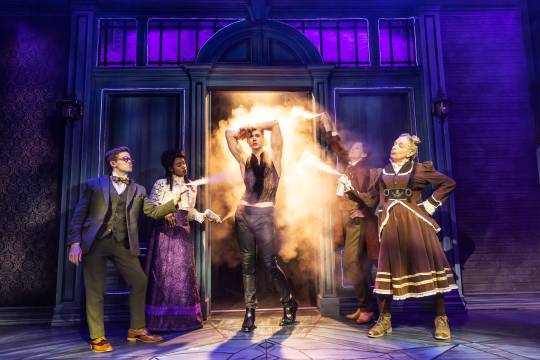
(L-R) Andrew Keenan-Bolger, Jordan Boatman, James Daly, Ellen harvey and Arnie Burton in DRACULA, A COMEDY OF TERRORS. Photo by Matthew Murphy
SYNOPSIS: A pansexual GenZ Count Dracula is in the midst of an existential crisis. When he sets his sights on the brilliant young earth scientist Lucy Westfeldt, he meets his match for the first time – as well as a slew of other colorful characters including vampire hunter Jean Van Helsing, insect connoisseur Percy Renfield and behavioral psychiatrist Wallace Westfeldt, whose British country estate doubles as a free-range mental asylum.

(L-R) Ellen Harvey, James Daly and Arnie Burton TERRORS. Photo by Matthew Murphy
REVIEW: Horror comedies come in only two flavors - good and bad. DRACULA, A COMEDY OF TERRORS is a sensational, decadent satire that is the perfect treat for the Halloween season.
Gordon Greenberg and Steve Rosen's satirical and irreverent treatment of the Stoker novel resides somewhere in between “The Rocky Horror Musical” and a Monty Python film, with flares of the immortal Charles Ludlam. The tone is set right from the start as the cast tosses the novel and the hilarity begins. The previous productions of the play, including an adaptation of the piece as a radio play for The Broadway Podcast Network, clearly have sharpened the dialogue and wordplay to a razor sharp wordplay duel that had the audience laughing out loud within the first few moments. The writers have trimmed the novel down to a 90 minute tale that tries to incorporate key elements of the story, taking liberties with the novel’s climax to nicely dovetail with the themes of their play. The satire runs the spectrum from that of the novel, political, contemporary pop culture, and gender. Except for Dracula, the other actors have dual or multiple roles where the juggling of the characters adds to the merriment.

James Daly and Jordan Boatman in DRACULA, A COMEDY OF TERRORS. Photo by Matthew Murphy
Gordon Greenberg’s direction is superb. It is a finely tuned choreography of dialogue and movement that harkens back to the golden era of silent films to the Marx Brothers. There are some delightful props, including puppets, that add yet another level of humor to the production. Greenberg turns up the energy right at the start and maintains it for 90 minutes, giving the audience little time to recover from the side splitting laughter.

James Daly and Andrew Keenan-Bolger in DRACULA, A COMEDY OF TERRORS. Photo by Matthew Murphy
Tijana Bjelajac’s Scenic Design is a wonderful minimalist and still adds atmosphere to the production. Integrated into the set are nice visual and functional elements that are scaled down for an off-broadway production but are lavish enough, and easily would work for a Broadway staging. Tristan Raines’ costume designs are fabulous. The designs capture the period but also combine contemporary elements that highlight the performances.

Arnie Burton and James Daly in DRACULA, A COMEDY OF TERRORS. Photo by Matthew Murphy
DRACULA, A COMEDY OF TERRORS features an award worthy ensemble cast. The delivery of lines, the body language and facial expressions, their interactions are flawless, and if there were any misfires I didn’t notice. There was a fluidity to their performances that at times it felt like choreography. James Daly is outstanding as Dracula. He is as dynamic and enchanting as Tim Curry’s Dr. Frank-n-Furter, combined with the physique of Rocky. He delivers this multifaceted performance rich with comedic timing. Actor Arnie Burton steals the show as both Mina and Jean Van Helsing. He creates two unique performances that embodies the comedic prowess that is reminiscent of Milton Berle to Harvey Fierstein, with a dash of Bugs Bunny. In contrast, actress Ellen Harvey brings to life Wallace Westfeldt and Percy Renfield. She brilliantly effects switching between the two extremes that eventually becomes an uproarious gag in play. The cast does an astounding job of maintaining the energy level of the play for 90 minutes.

Andrew Keenan-Bolger and Jordan Boatman in DRACULA, A COMEDY OF TERRORS. Photo by Matthew Murphy
DRACULA, A COMEDY OF TERRORS is a side-splitting tour de force that would leave Bram Stoker and Mel Brooks rolling in the aisles, and maybe a bit envious. I’ve always advocated that there is a distinct bond between comedy and horror, and this is at its finest. Outstanding performances, fabulous production designs, brilliant directing, all deliver an energetic feel good and memorable theater experience. You must bring your friends for a night you’ll long remember as the perfect treat of this Halloween season.

James Daly in DRACULA, A COMEDY OF TERRORS. Photo by Matthew Murphy
Opening night is September 18. Performances are Monday, Wednesday, Thursday and Sunday at 7PM, Friday and Saturday at 8PM, with matinees Saturday and Sunday at 2PM. Tickets are $99 - $119. Premium seating is available. Tickets are now on sale at Telecharge.com, (212) 239-6200. For more information, visit www.DraculaComedy.com.
Review By: Joseph B Mauceri
Listen to our interview with director & co-writer Gordon Greenberg & co-write Steve Rosen on creating DRACULA, A COMEDY OF TERRORS – HERE
#Theater review#off-broadway#DRACULA#A COMEDY OF TERRORS#Gordon Greenberg#Steve Rosen#James Daly#Jordan Boatman#Arnie Burton#Andrew Keenan-Bolger#Ellen Harvey#dracula#bram stoker#comedy#joseph b mauceri#joseph mauceri
7 notes
·
View notes